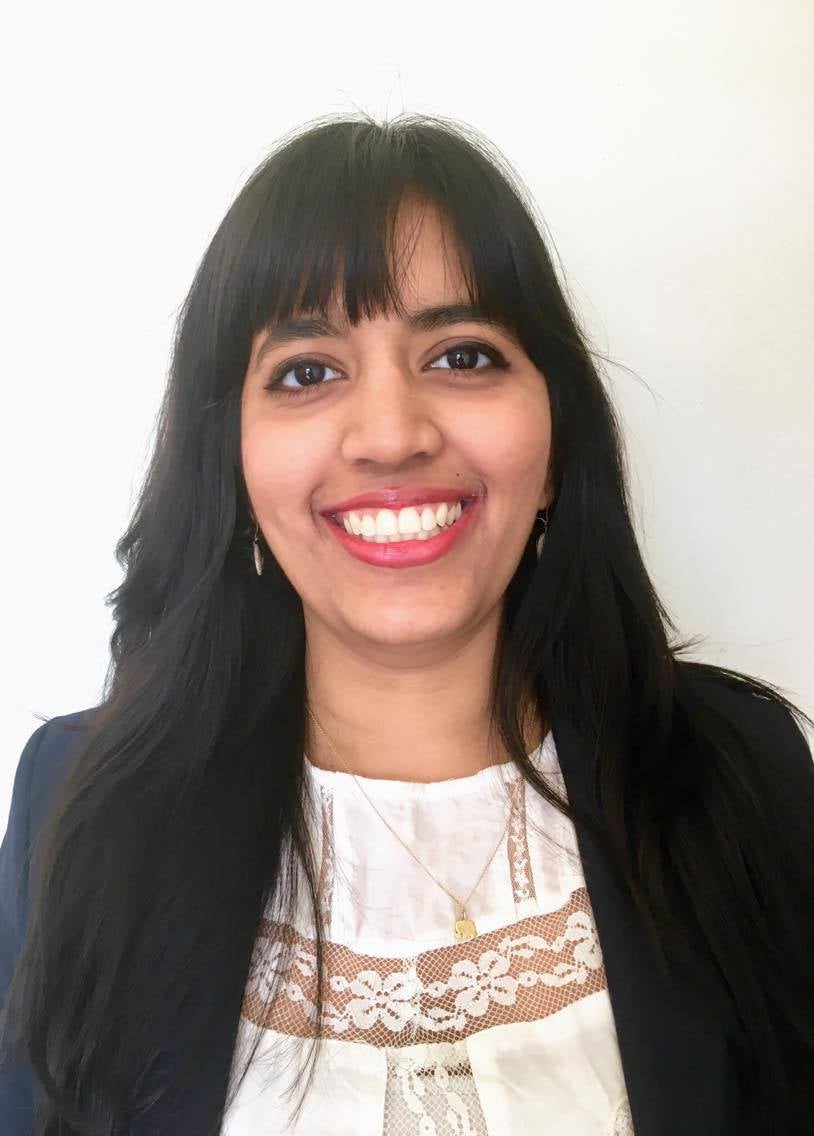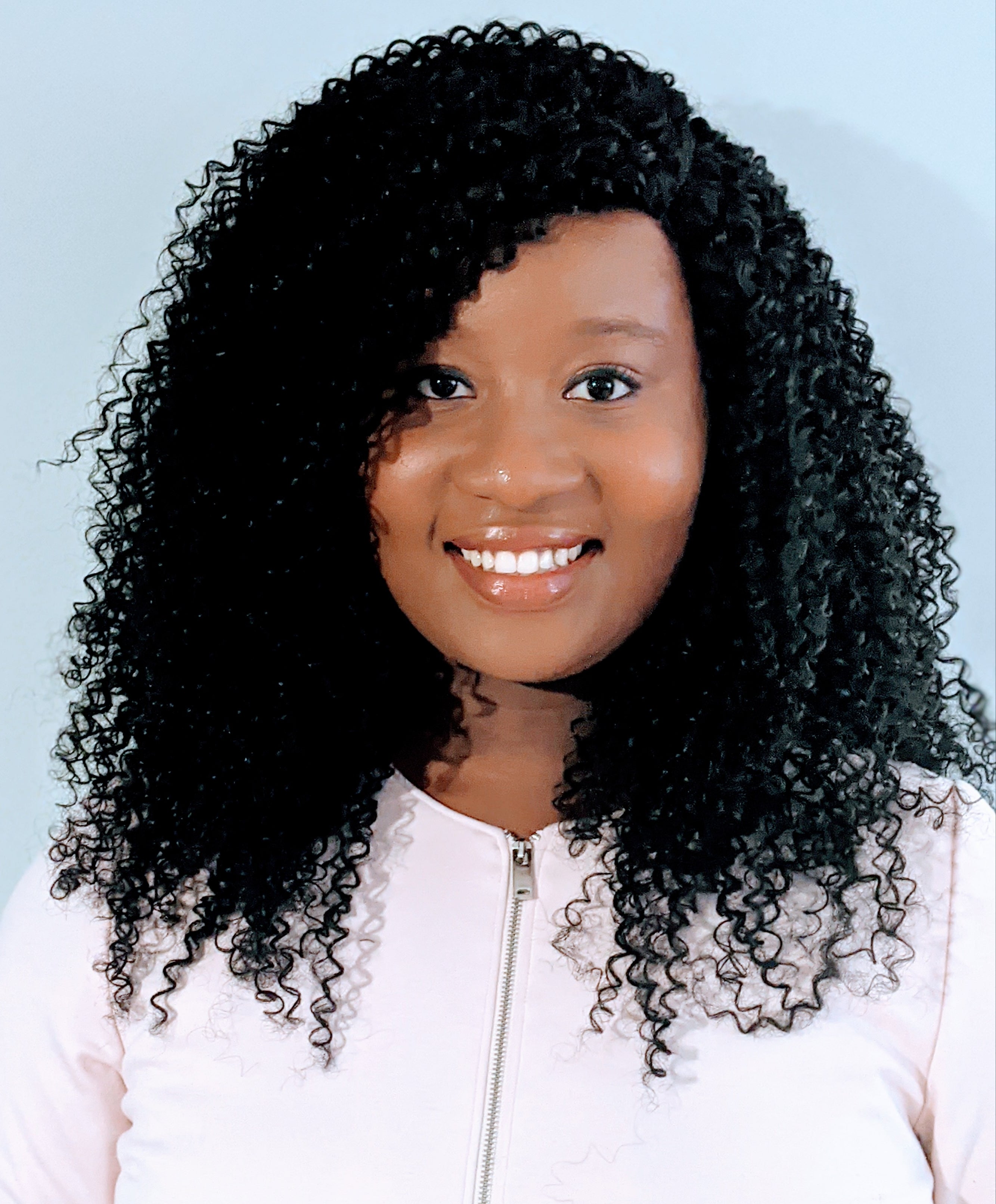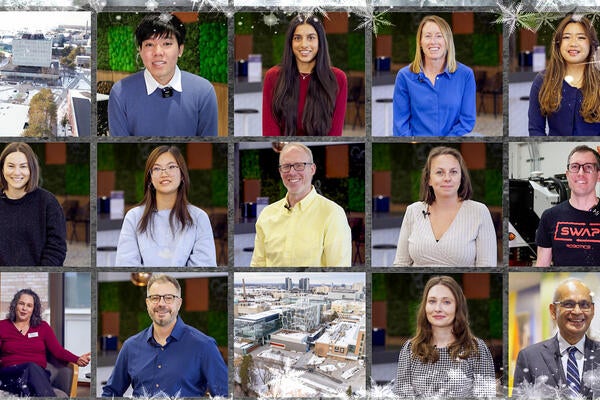
Imposter syndrome no more
New student-led initiative looks to connect and unite women scientists across campus

New student-led initiative looks to connect and unite women scientists across campus
By Sam Toman Faculty of Environment“If only I knew then, what I know now.” That common expression applies to most of us, but for two student organizers at the University of Waterloo, it’s a call to action for women researchers across campus to connect-with, support and mentor each other in a space where women waste a disheartening amount of time simply justifying their right to be treated as academic equals.
Vasundhara Saravade and Blessing Ajayi are launching Waterloo Women Leading Academia (WWLA), an organization connecting women in academia here on campus and empowering them in their day-to-day lives to raise-up female leaders in their personal and professional spheres.
“From my experience, most women are already mentoring their students or juniors in an active capacity within academia,” says Saravade, who is pursuing a doctoral degree in the Faculty of Environment. “What is missing is the tangible network that they can rely on to support each other during difficult times or to empower each other to lead within their professional lives.” The pair are drawing on their own challenges as women in academia to inform how they continue to build their network and programming.

Vasundhara Saravade
> Faculty of Environment (PhD'23)
> Launching WWLA
“Over the years, I’ve gone through a few challenging experiences, ranging from not knowing how to negotiate a better consulting fee to feeling the imposter syndrome when speaking at a conference,” says Saravade. “I also find that challenges arise when you are a young female student looking to be taken seriously in an innovative research area like mine in sustainable finance.”

Blessing Ajayi
> Faculty of Environment (PhD'23)
> Launching WWLA
Ajayi agrees. “Two of my three supervisors so far have been female, which is not something that happens often, and even at that, there is still this lingering feeling of having to break into the boy’s club as relates to certain areas of academia.”
For her, there are also unique challenges that stem from being a woman in academia which only other experienced women can guide through.
“I have found that it can be difficult for women to find a safe space to have the necessary conversations about these challenges and experiences.”
These inequities, and the extra work they force women to do, also make getting something like Waterloo Women Leading Academia (WWLA) harder to get off the ground. Simply put, the women academics they reached out to love the idea, but when it comes to the active participation, “we are finding a bit of a lag,” says Saravade.
“I think younger women academics, who are already overwhelmed with family needs and research outputs, combined with an ongoing pandemic, are finding it especially hard to set aside time for mentorship,” she adds.
In a fair scenario, the expectation of mentorship should be there regardless of gender. As experienced from their interactions with various faculty members, they find that women need mentorship the most, but are also less likely to be able to provide it, mainly because they are already stretched thin across other commitments.
Waterloo Women Leading Academia was launched with a grant from the Waterloo Environment Students Endowment Fund and the pair want everyone on campus to know that for the project to succeed they need female researchers and graduate students from all faculties to get involved.
“Having women be a force on campus could also lead to more inclusive and diversity-linked hiring decisions at the faculty level, and could also influence more female students to see academia, especially the STEM category or male-dominated research areas like finance, as a potential career option,” Saravade says.
In the future, WWLA plans to expand its Faculty Advisory Council which currently includes Goretty Dias from Environment, Kirsten Müller from the Faculty of Science among others.
“It’s rewarding to be a mentor to someone,” says Goretty Dias, a researcher of food systems, sustainability and bioenergy. “I’ve seen too many new academics (men and women) struggle to know how to balance teaching and research, how to prioritize, what strategies to use. I’ve had exceptional mentors along the way, who have encouraged me to do things I didn’t think were possible. I’d rather lift up those around me, as others have done for me.”
This endeavour is welcoming of cis, trans, racialized, Indigenous, LGBTQ+ and non-binary people, and open to Waterloo researchers at the faculty-level and graduate or undergraduate students.
“This makes me feel like there can be a community of women in academia who genuinely care about my life within and outside academia,” Ajayi says. “It gives me hope.”

Read more
An ambitious research collaboration with Habitat for Humanity is reimagining home ownership across Waterloo Region and Canada

Read more
Here are the people and events behind some of this year’s most compelling Waterloo stories

Read more
A winter holiday message from President Vivek Goel
The University of Waterloo acknowledges that much of our work takes place on the traditional territory of the Neutral, Anishinaabeg, and Haudenosaunee peoples. Our main campus is situated on the Haldimand Tract, the land granted to the Six Nations that includes six miles on each side of the Grand River. Our active work toward reconciliation takes place across our campuses through research, learning, teaching, and community building, and is co-ordinated within the Office of Indigenous Relations.